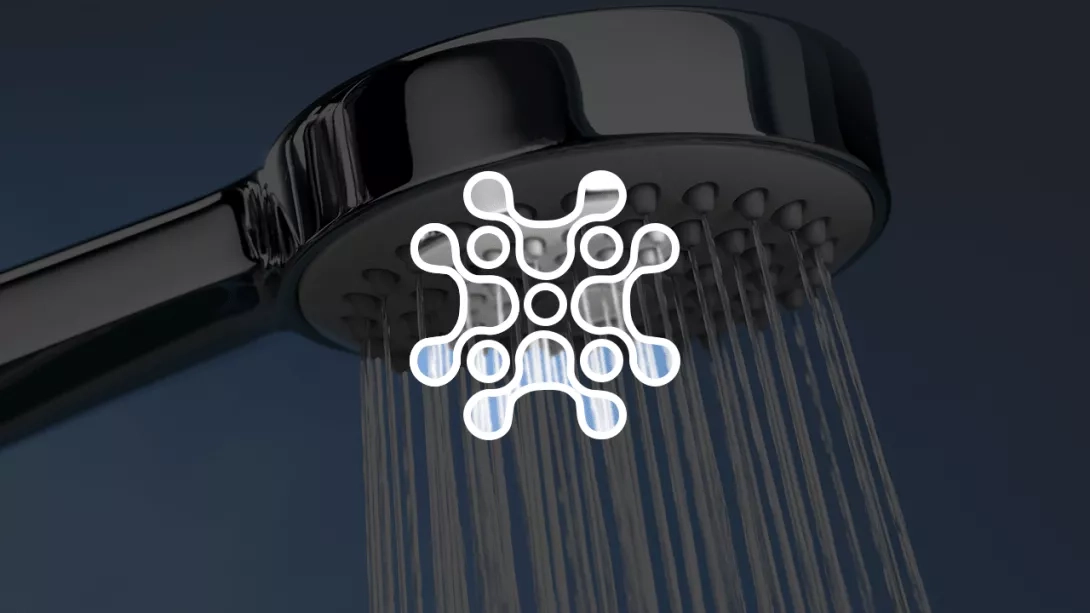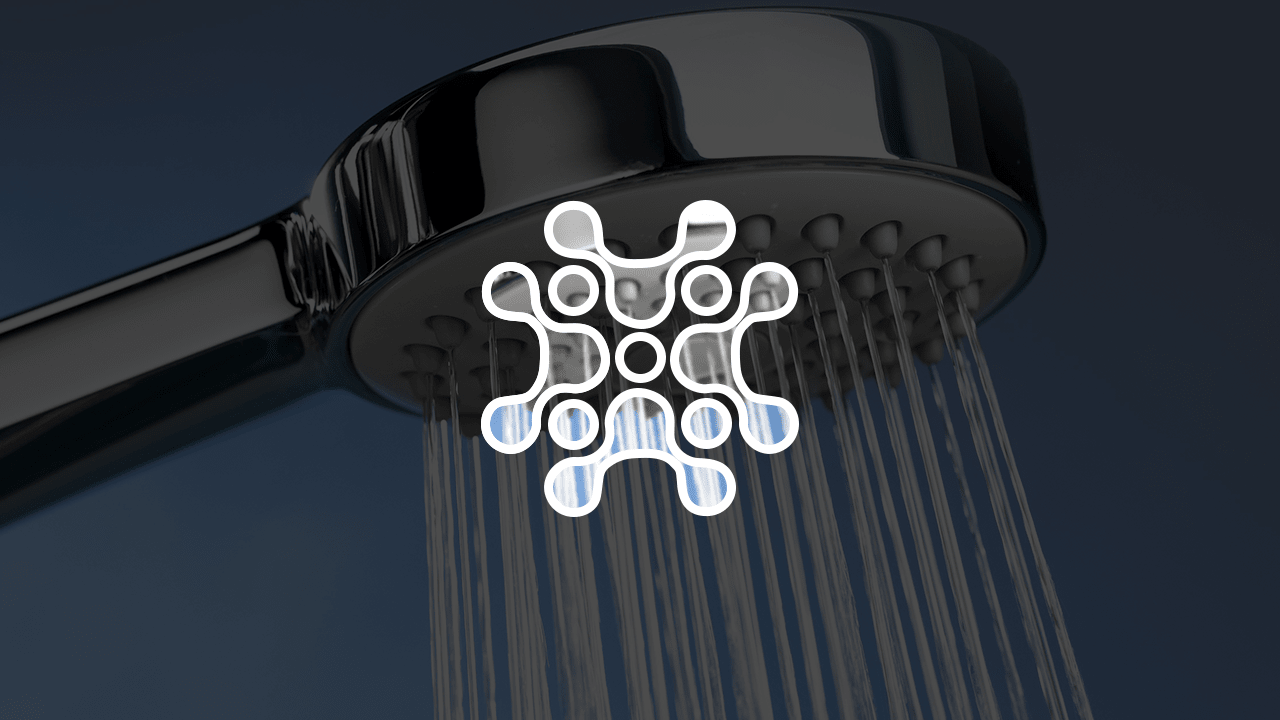Intoday's world, where water quality is becoming a growing concern, individuals are increasingly turning to innovative solutions to ensure the safety and purity of their water supply. One such solution gaining popularity is the use of water filter for shower. These devices claim to provide a range of benefits, from improving water quality to promoting healthier skin and hair. In this article, we will explore what shower water filters are, how do shower filters work, and whether they truly live upto their promises.

What Is A Shower Filter?
Shower filters are specialized devices designed to remove impurities and contaminants from water before it reaches you during your shower. They typically consist of a casing that houses filtration media, such as activated carbon, KDF (Kinetic Degradation Fluxion) media, or ceramic beads. These filtration materials work together to trap and remove various substances, including chlorine, heavymetals, sediment, and organic compounds.
Why Is Chlorine Present In Water?
Chlorine is commonly added to municipal water supplies as a disinfectant, but it can have adverse effects on both our health and the environment. When we shower, chlorine can vaporize and be inhaled or absorbed through the skin, leading to dryness, irritation, and damage to our hair and skin. Additionally, other contaminants like heavy metals and sediment can also be present in water, which may negatively impact our well-being over time.
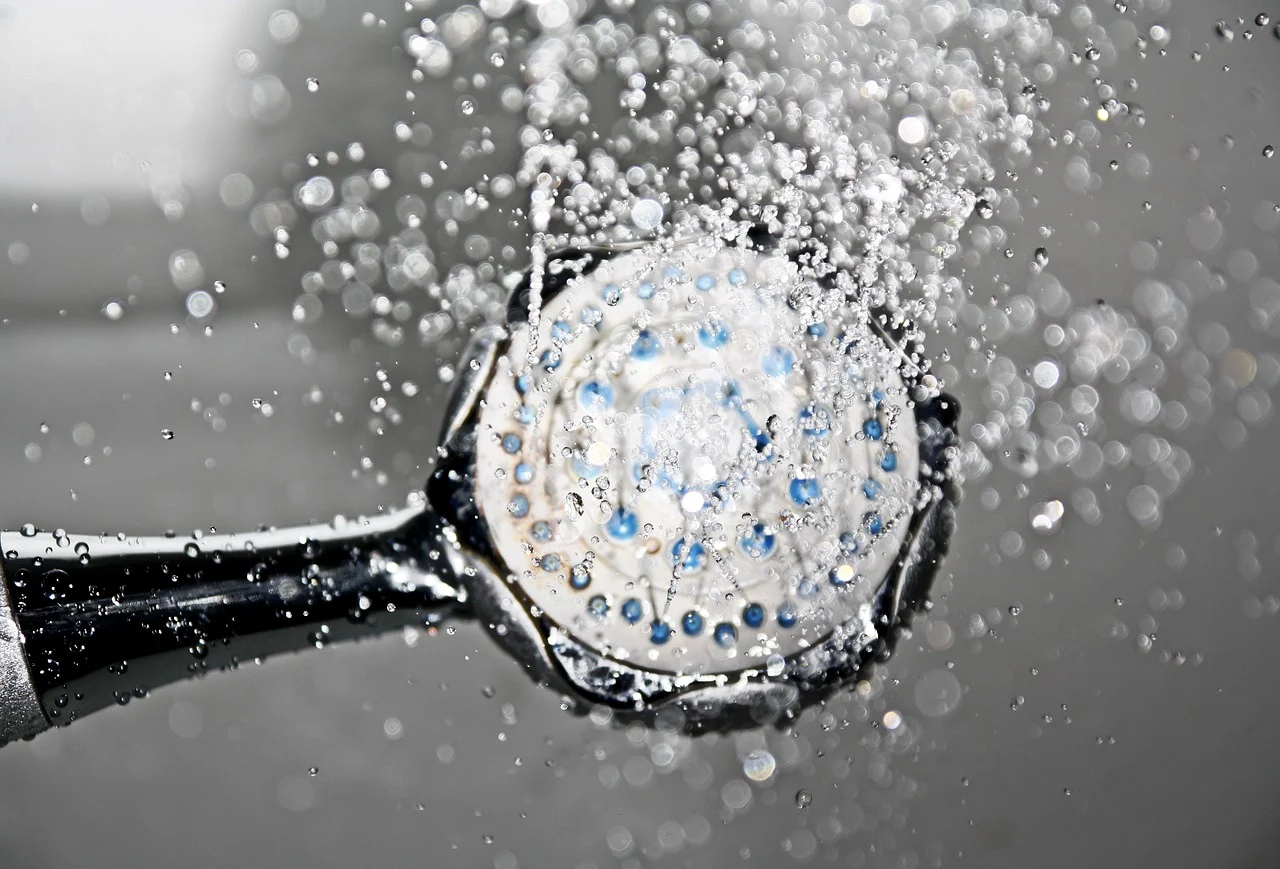
Do Shower Filters Really Work?
The effectiveness of shower filters largely depends on their design, quality, and the filtration media used. High-quality shower filters are capable of significantly reducing or eliminating chlorine and other impurities, thereby improving the overall quality of your shower water. Showerhead filter can help alleviate common issues like dry skin, itchiness, and brittle hair that can result from exposure to chlorine and other contaminants.
While shower filters excel at removing chlorine, their ability to remove other substances may vary. It's important to choose a shower filter that specifically addresses the contaminants of concern in your water supply. For example, if youlive in an area with high levels of heavy metals, look for a filter that incorporates specialized media for heavy metal removal.
It'sworth noting that while shower head water filter can effectively remove many impurities, they are not capable of purifying water tothe same extent as whole-house water filtration systems or reverse osmosis systems. If you are concerned about overall water quality for drinking andother household uses, consider exploring these comprehensive filtration options.
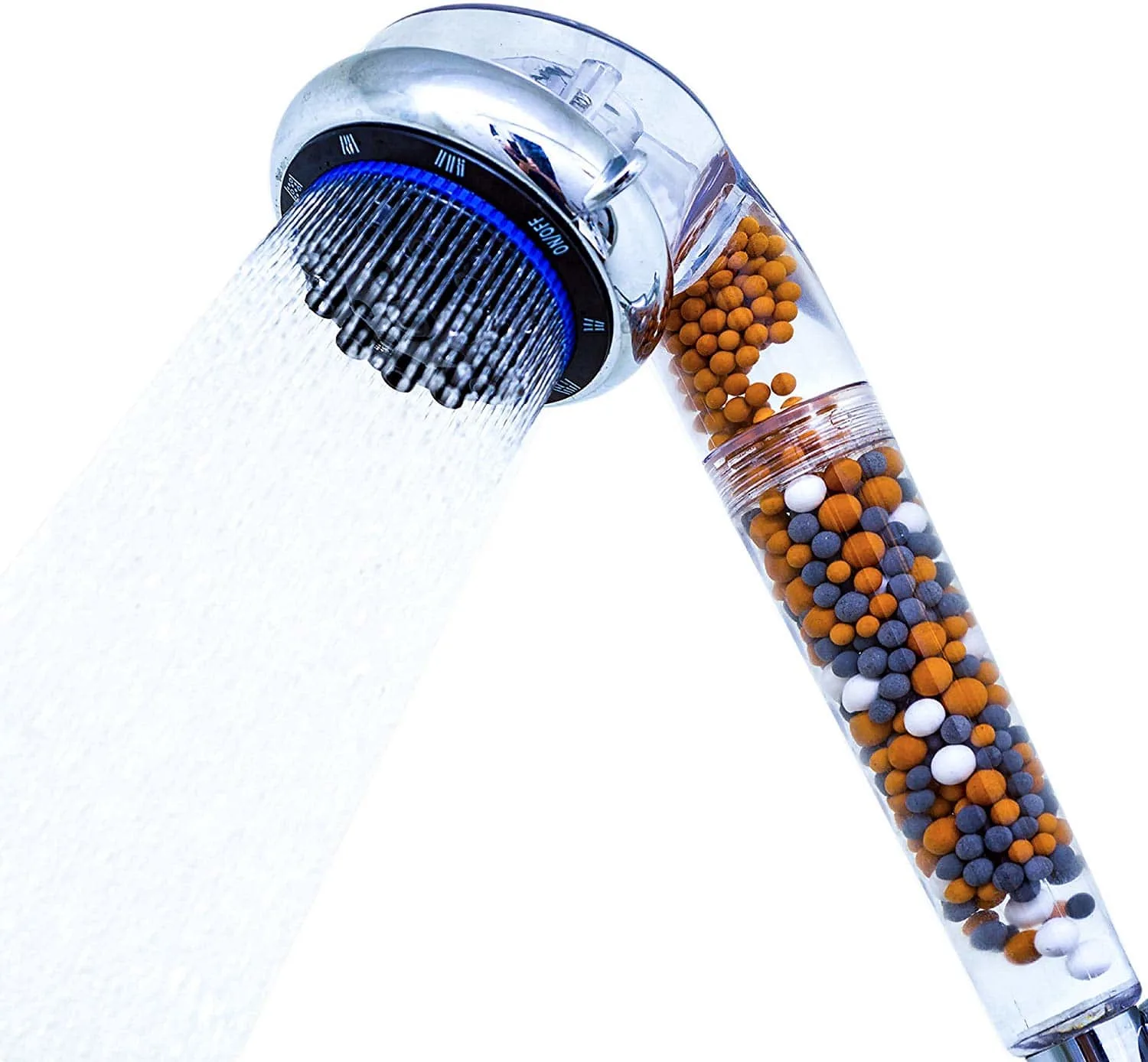
How Do Shower Filters Work?
Installed in your shower system, shower filters act as a reliable barrier against unwanted substances lurking in your water. As the water flows through the shower filter, it is purified by the filter media in the shower filter.
Activated carbon, a common component of shower filters, acts as a magnet for impurities. Its porous structure provides a sufficient surface area for chemical bonding, effectively trapping chlorine molecules and organic compounds as the water passes through. This not only eliminates the unpleasant odour and taste of chlorine, but also reduces the risk of skin irritation and dryness.
In tandem with activated carbon, KDF media uses a process called redox (reduction-oxidation) to neutralise harmful contaminants. Through a chemical reaction, KDF converts chlorine and heavy metals such as lead and mercury into harmless substances, making them inert and less harmful to your skin and respiratory system.
Ceramic beads, another integral part of shower filters, aid the filtration process by filtering out sediment and particulate matter. These tiny beads act as a physical barrier, preventing larger impurities from penetrating the skin or hair. By reducing sediment buildup, ceramic beads help maintain the efficiency and longevity of your shower filter, ensuring consistent water quality over time.
Are Shower Filters Carbon Filters?
While shower filters are renowned for their ability to enhance water quality, a common query arises regarding their composition, particularly whether they exclusively utilize carbon filtration. Understanding the intricacies of shower filters sheds light on this question.
Shower filters indeed frequently incorporate activated carbon as a key filtration medium. This porous substance excels in adsorbing chlorine, volatile organic compounds (VOCs), and other contaminants present in water. Its effectiveness in reducing odor and improving water taste makes it a staple in many filtration systems. However, the scope of shower filters extends beyond carbon filtration alone. In addition to activated carbon, shower filters often integrate other filtration materials such as KDF (Kinetic Degradation Fluxion) media and ceramic beads. KDF media complements carbon filtration by targeting heavy metals like lead and mercury, utilizing a redox process to neutralize them effectively. Meanwhile, ceramic beads act as a physical barrier, sieving out sediment and larger particulates, thereby preventing clogging and maintaining optimal water flow.
The synergy of these filtration components distinguishes shower filters from standalone carbon filters. By incorporating a diverse range of filtration media, shower filters offer comprehensive purification, addressing a broader spectrum of contaminants while extending their efficacy over time. This multifaceted approach ensures that shower filters not only remove impurities but also provide a consistent and reliable means of enhancing water quality for a refreshing and rejuvenating shower experience.

Do Shower Filters Soften Water?
Shower filters are primarily designed to purify water by removing impurities and contaminants, but do they also have the capability to soften water? Unlike water softeners, which typically use ion exchange or salt-based systems to reduce the concentration of minerals like calcium and magnesium, shower filters focus primarily on filtration rather than softening.
While some shower filters may incorporate certain components that can help reduce the effects of hard water, such as ceramic beads that can help inhibit mineral buildup, their primary function is not water softening. The filtration media commonly found in shower filters, such as activated carbon and KDF media, are geared towards removing chlorine, heavy metals, and other impurities, rather than altering the mineral content of the water.
Therefore, while shower filters can contribute to a more enjoyable shower experience by improving water quality and reducing the negative effects of certain contaminants, they are not typically intended for water softening purposes. For individuals seeking to address issues related to hard water, such as dry skin and hair or limescale buildup, dedicated water softening systems may be a more suitable solution.
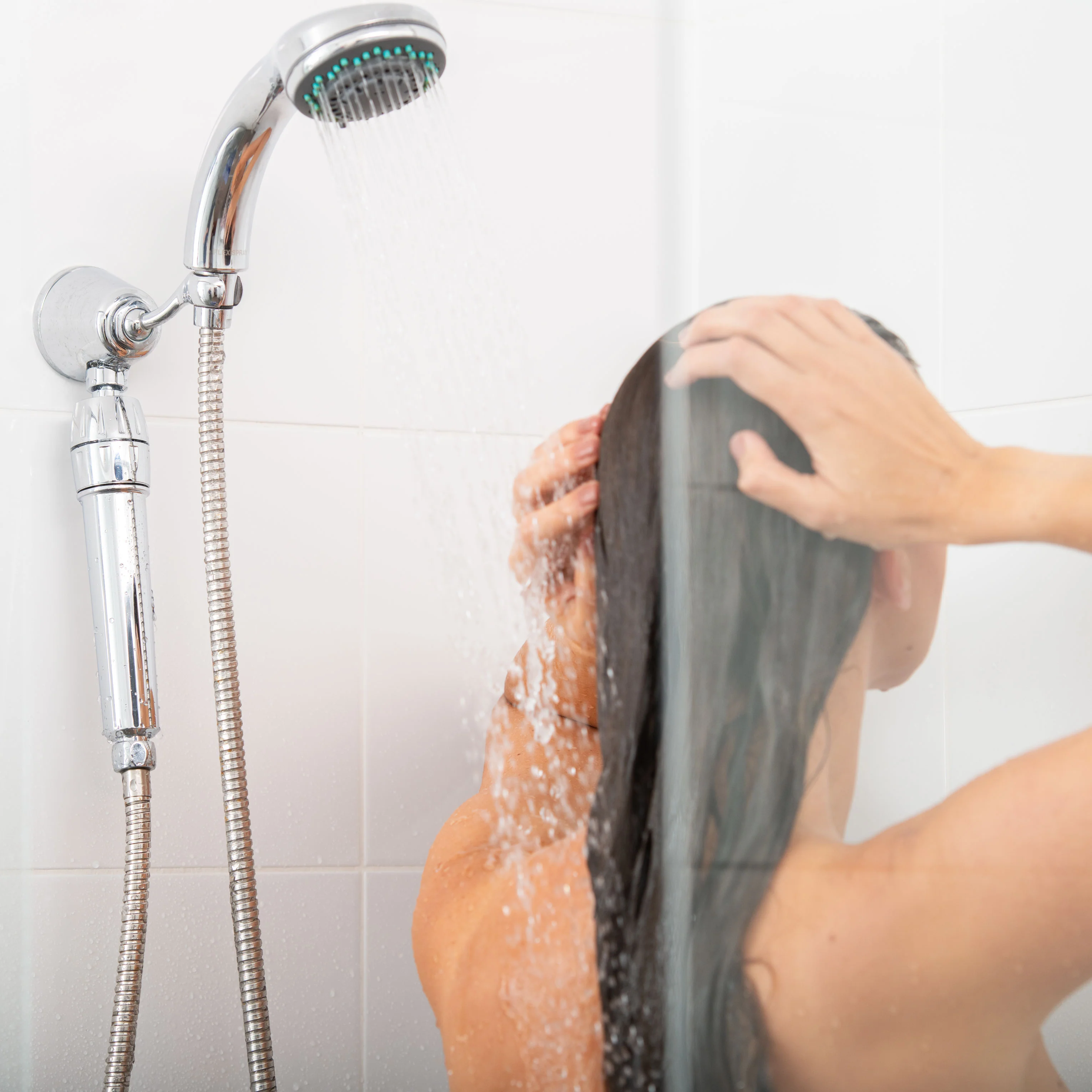
Do Shower Filters Remove Chloramines?
Chloramines, compounds formed by the combination of chlorine and ammonia, are commonly used in water treatment for disinfection. They present a challenge for traditional shower filters due to their smaller molecular size and resistance to standard filtration methods.
However, specialized shower filters equipped with certain filtration media, such as catalytic carbon or KDF, are capable of effectively removing chloramines from water. Catalytic carbon, with its enhanced adsorption properties, can efficiently capture chloramines, while KDF media undergoes a redox reaction that neutralizes chloramines.
It's important to note that not all shower filters are designed to remove chloramines. Therefore, individuals concerned about chloramine exposure should specifically look for shower filters labeled as capable of chloramine removal or consult with water treatment experts to select an appropriate filtration system.
Do Shower Filters Reduce Water Pressure?
Most high-quality shower filters are engineered to minimize any reduction in water pressure. They are designed with optimized flow rates and efficient filtration mechanisms to ensure that water flows smoothly through the filter without significant impedance. Additionally, many shower filters incorporate features such as larger filter pores or bypass valves to mitigate pressure loss.
However, it's essential to note that certain factors may influence water pressure when using a shower filter. These factors include the condition of the plumbing system, the quality of the water supply, and the specific design of the shower filter itself. In some cases, older plumbing systems or filters with smaller pores may contribute to a slight reduction in water pressure.
Overall, while there may be minor variations in water pressure when using a shower filter, the impact is typically minimal and outweighed by the benefits of improved water quality. With proper installation and maintenance, a high-quality shower filter can provide both effective filtration and satisfactory water pressure for a comfortable and enjoyable showering experience.
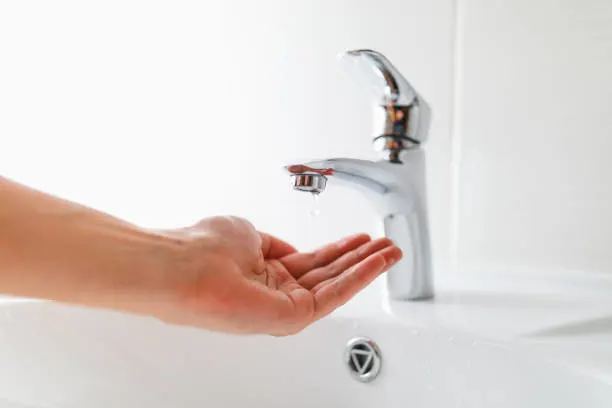
How Long Do Shower Filters Last?
The lifespan of a shower filter depends on various factors, including water quality, usage frequency, and the specific design of the filter. On average, most shower filters are designed to last between 6 to 12 months before requiring replacement. Water quality plays a significant role in determining filter longevity. In areas with higher levels of contaminants or sediment, such as hard water regions, filters may become saturated more quickly and need more frequent replacement. Conversely, in areas with cleaner water, filters may last longer. Usage frequency also influences the lifespan of a shower filter. Filters used daily or by multiple individuals will likely need replacement more often than those used less frequently. Additionally, filters installed in homes with larger households may need more frequent replacement due to increased water usage.
How To Choose The Best Shower Filter?
Choosing the best shower filter requires consideration of several key factors to ensure optimal water quality and filtration performance:
1. Identify Water Quality Issues
Begin by assessing the specific water quality issues in your area. Common concerns include chlorine, chloramines, heavy metals, sediment, and hard water minerals. Understanding your water quality challenges will help you select a shower filter tailored to address those issues effectively.
2. Filtration Method
Consider the filtration method that best suits your needs. Activated carbon filters are effective against chlorine and organic compounds, while KDF filters target heavy metals and chloramines. Some filters combine multiple filtration media for comprehensive purification.
3. Compatibility
Ensure that the shower filter is compatible with your existing showerhead and plumbing setup. Most shower filters are designed to fit standard shower arms and can be easily installed without the need for tools or professional assistance.
4. Flow Rate
Consider the flow rate of the shower filter to ensure adequate water pressure and flow during showering. Look for filters with optimized flow rates that minimize pressure loss while providing efficient filtration.
By carefully considering these factors and choosing a shower filter that aligns with your water quality needs and preferences, you can enjoy cleaner, healthier, and more refreshing showers while prolonging the lifespan of your plumbing fixtures and protecting your skin and hair from the effects of harsh chemicals and contaminants.

What Is A Bath Filter?
While shower filters focus on improving the water quality for showering, bath filters are specifically designed to enhance the water used for bathing in bathtubs. They share similarities with shower filters in terms of their purpose – to remove impurities and contaminants from water – but one of the primary differences between bath filters and shower filters lies in their filtration capacity and coverage. Bath filters are typically equipped with larger filter cartridges and higher flow rates to accommodate the larger volume of water used in baths. This ensures that the water is adequately filtered and purified throughout the entire bathing process.
Bath filters are available in various designs to accommodate different bathtub types and installation preferences. Some attach directly to the bathtub faucet, while others are installed inline with the existing plumbing. This setup allows for the filtration of water as it fills the bathtub, ensuring that the water you bathe in is purified and free from unwanted substances. Regardless of the design, bath filters are easy to install and require minimal maintenance, typically needing replacement cartridges every few months, depending on water quality and usage frequency.
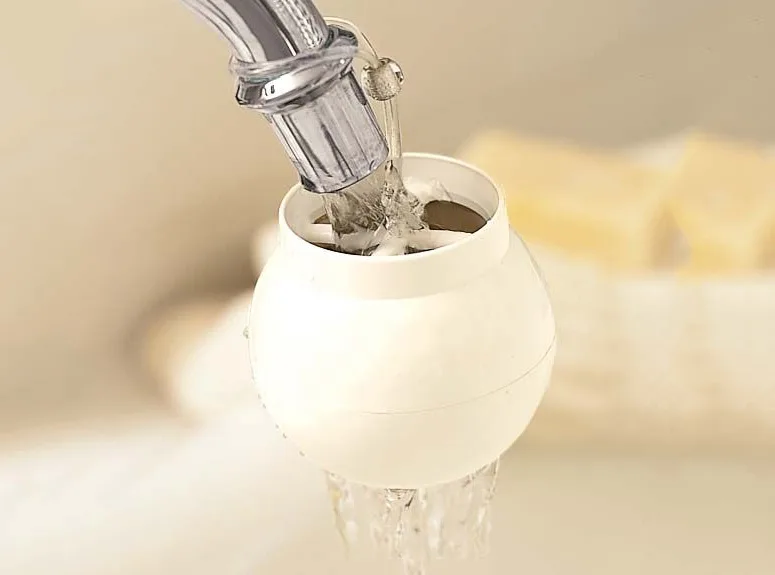
Shower Filter Alternatives
While shower filters are effective at improving water quality, there are alternative methods available for enhancing the water you use for showering. These alternatives offer different approaches to addressing specific water quality concerns and can provide additional benefits beyond traditional filtration.
Whole-house Carbon Filter
Unlike point-of-use filters, which are installed at individual water outlets like showers or faucets, whole-house carbon filters are typically installed at the point of entry for the water supply. This allows them to treat all water entering the home, ensuring that every tap delivers filtered water.
Activated carbon, the primary filtration medium used in whole-house carbon filters, is renowned for its ability to adsorb a wide range of contaminants, including chlorine, chloramines, volatile organic compounds (VOCs), and other chemicals and odors. As water passes through the carbon filter media, contaminants are trapped and removed, resulting in cleaner, safer water for drinking, cooking, bathing, and household chores. Additionally, they protect plumbing fixtures, appliances, and water-using devices from damage caused by mineral buildup and corrosion, promoting longevity and reducing maintenance costs.

Water Softeners
Ion exchange water softeners operate by replacing calcium and magnesium ions in the water with sodium ions. As water passes through a resin bed containing negatively charged resin beads, the calcium and magnesium ions are attracted to the resin and exchanged for sodium ions, effectively softening the water. Periodically, the resin bed is regenerated by flushing it with a brine solution, which replenishes the sodium ions and flushes out the accumulated calcium and magnesium ions.
Salt-based water softeners are the most common type of water softener and are effective at producing consistently soft water. However, they require regular maintenance to replenish the salt supply and regenerate the resin bed, which involves monitoring salt levels and periodically adding salt to the system.
Unlike shower filters that primarily focus on removing impurities and contaminants like chlorine, water softeners specifically target the minerals responsible for hardness, such as calcium and magnesium. By utilizing ion exchange or salt-based systems, water softeners effectively remove these minerals, resulting in softer water that is gentler on the skin and hair, reduces scale buildup in plumbing fixtures and appliances, and improves the longevity and efficiency of water-using devices.
Overall, water softeners offer an effective solution for alleviating the negative effects of hard water and improving water quality for various household uses. By investing in a water softener, homeowners can enjoy the benefits of softer, cleaner water and protect their plumbing fixtures and appliances from the damaging effects of mineral buildup.

Additional Benefits of Shower Filters
Apart from their primary function of water filtration, shower filter offer several additional benefits. By reducing chlorine and other harmful substances, they can help improve the health and appearance of your skin and hair. Many users report softer, more hydrated skin and a reduction in issues like eczema and dryscalp. Furthermore, filtered water can create a more enjoyable showering experience, free from unpleasant odors and tastes associated with chlorine.
Shower filters are an effective and affordable option for enhancing the quality ofyour shower water and minimizing exposure to chlorine and other contaminants. They can provide various health and cosmetic benefits, leaving you with softerskin, healthier hair, and an overall improved showering experience. However, it's important to select a high-quality shower head filter that suits your specific needs and addresses the contaminants present in your water supply. For comprehensive water purification throughout your home, it may be necessary to explore other filtration options. Embrace the power of shower filters to transform your daily showers into a refreshing and rejuvenating experience while safeguarding your well-being.
Faqs
What are the benefits of using shower filters?
Using shower filters can offer several benefits for both your health and the overall showering experience. Some of the key benefits include:
- Reduced exposure to chlorine: Shower filters effectively remove chlorine from the water, which can cause dryness and irritation of the skin and scalp.
- Healthier skin and hair: By removing impurities and chemicals, shower filters help maintain the natural moisture balance of your skin and hair, preventing dryness, itchiness, and dullness.
- Protection against harmful substances: Shower filters can reduce the presence of heavy metals, volatile organic compounds (VOCs), and other potentially harmful substances in the water, providing an extra layer of protection.
- Improved air quality: When using a shower filter, the reduction of chlorine and other chemicals can help improve the air quality in your bathroom by reducing the release of chlorine vapors.
How do I choose the right shower filter for my needs?
When selecting a shower filter, consider the following factors:
- Water quality: Determine the impurities present in your water supply by conducting a water quality test, if possible. This will help you choose a filter that targets the specific contaminants you want to remove.
- Filter type: Different shower filters use various filtering media. Research and choose a filter that suits your requirements, such as activated carbon filters for chlorine removal or KDF filters for heavy metal reduction.
- Filter lifespan: Check the expected lifespan of the filter cartridge and consider how often you will need to replace it. This can impact the long-term cost and maintenance of the filter.
- Installation and compatibility: Ensure that the filter is easy to install and compatible with your existing showerhead or plumbing setup.
- Budget: Determine your budget range and look for filters that offer a balance between cost and performance.
Do shower filters really work?
Yes, shower filters do work in effectively reducing the levels of impurities and chemicals in the water. The filtering media present in shower filters are designed to capture and trap contaminants, resulting in cleaner and healthier water for showering. However, it's important to note that the effectiveness of a shower filter can vary depending on its quality, design, and the specific impurities present in the water supply. It's recommended to choose a high-quality filter that suits your specific needs and to replace the filter cartridge as per the manufacturer's instructions for optimal performance.
What are shower filters and how do they work?
Shower filters are devices designed to remove impurities and chemicals from the water used for showering. They typically contain a combination of filtering media such as activated carbon, KDF (Kinetic Degradation Fluxion), and ceramic balls. These media work together to effectively reduce chlorine, heavy metals, bacteria, and other contaminants present in the water. As the water passes through the filter, these impurities get trapped, resulting in cleaner and healthier water for showering.
